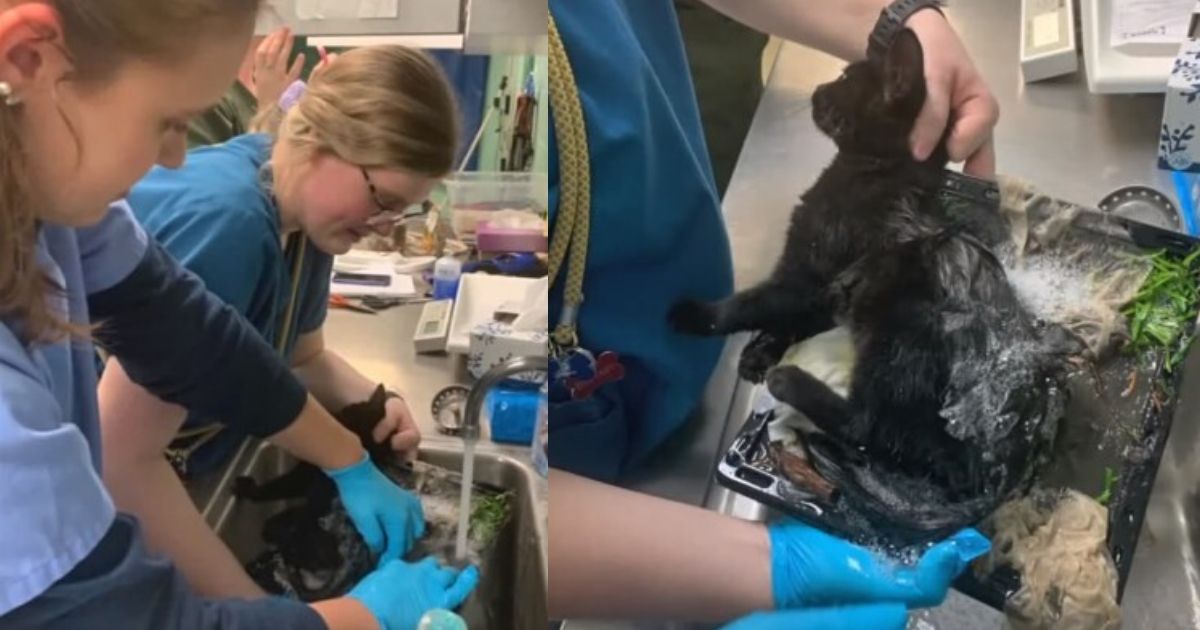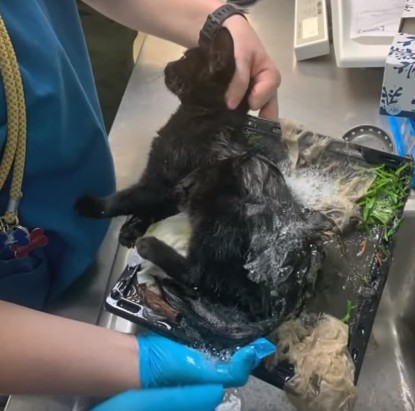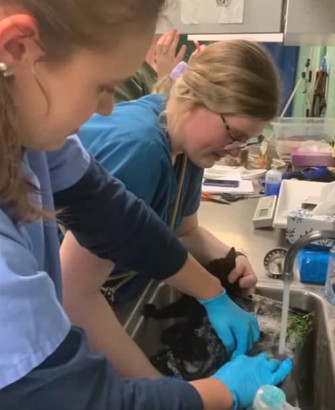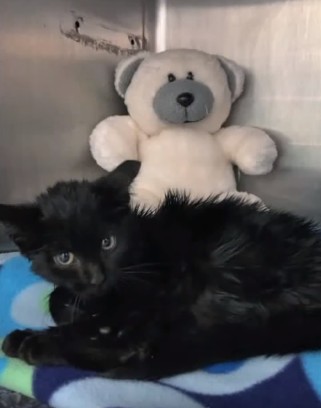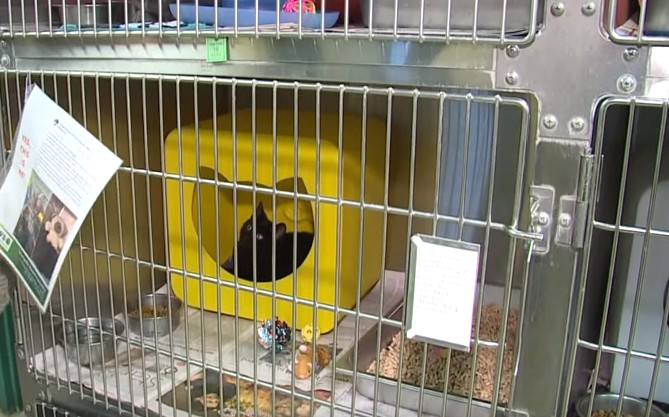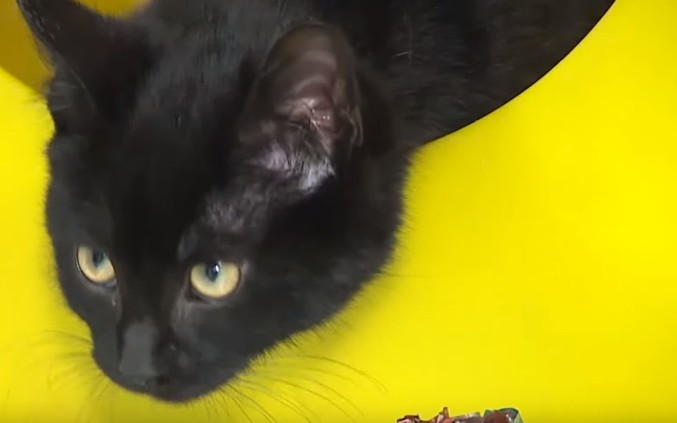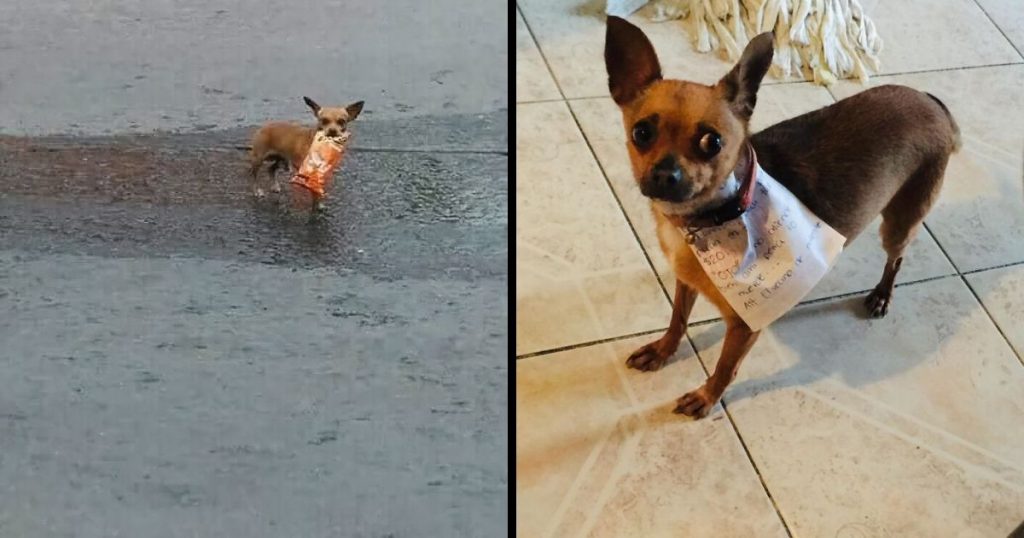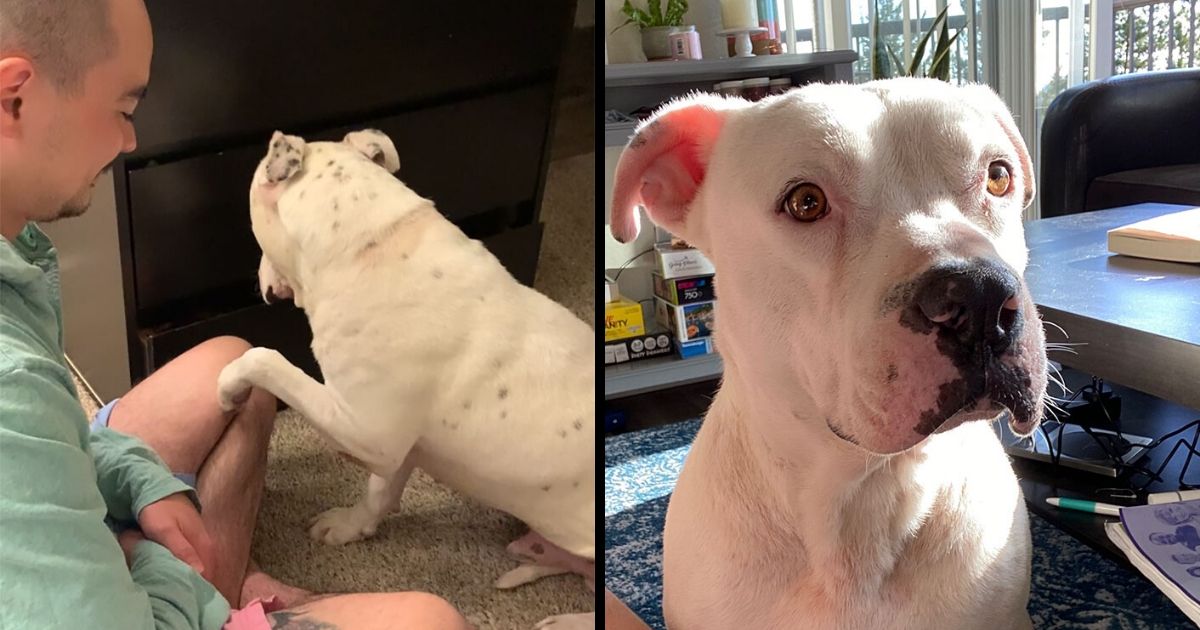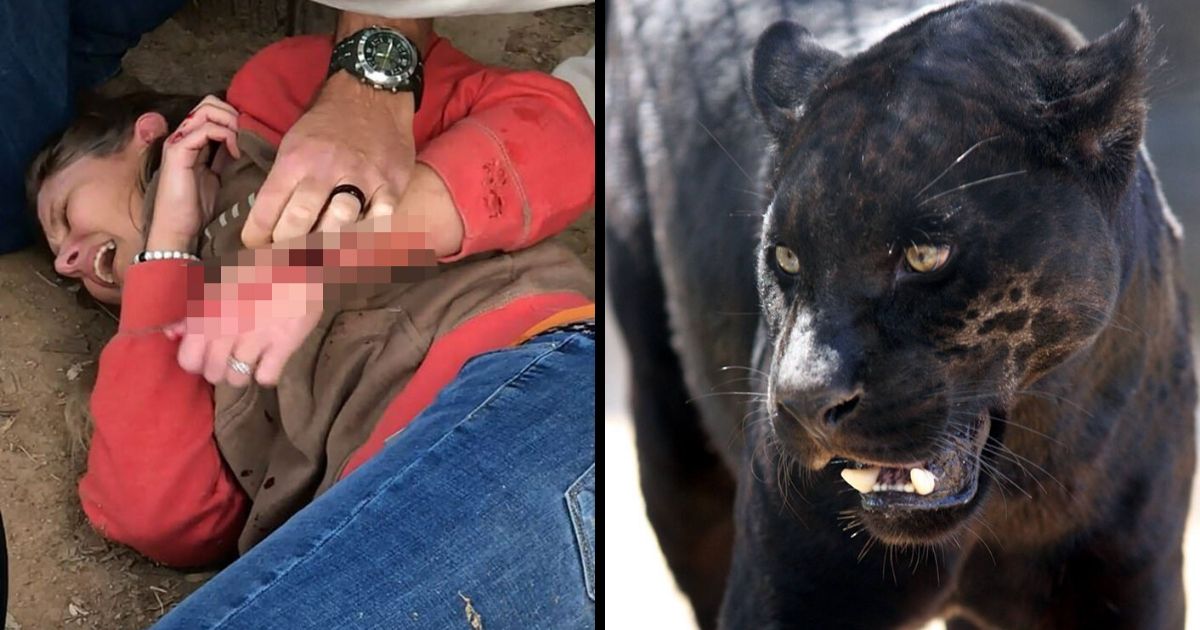Nobody wants wild or stray animals to dig through their trash, especially if after digging through it they leave a mess behind. They only try to survive with that said. It is inhumane to make survival more difficult. A black kitten that was only a few weeks old was discovered in the streets with something odd attached to his hand. It was a dab of glue. Elmer was in disorientation and shock, according to the person who found him.
The good Samaritan quickly took Elmer to HAWS to see whether they could do anything to help him. It took some time to get the trap off Elmer’s body without harming him, but Brittany, Megan, and Caitlin (HAWS Caregivers). They used a lot of soap and oil to get his fur and paws out of his glue. Surprisingly Elmer remained calm and acted as if he knew they were trying to save him during the whole process of trying to purify him and set him free.
He was given a foster family to live with for a few weeks to help Elmer recover from the whole scourge. Elmer enjoys snuggling, unlike some cats. He’ll begin rumbling and falling down asleep if you cradle him like the cat.
Things look up He has regained all his energy and has grown up a lovely sleek velvety coat with his new foster humans over the week. Just a few minutes after he was eligible for adoption did it take someone to show real interest in adopting Elmer. The waiting list for the opportunity to take on him has become more and longer and makes Elmer almost sure that he finds a loving home to look after him.
First of all, we can not doubt that they are operating very well. The cruelty behind glue traps Some mice or animals approaching these traps can not escape. So they’re so popular. Why, then, are they a question? For one, the right animal is not always caught. Take Elmer the kitten’s example; for anyone who left this trap he was not a suitable prey. Birds and dogs may sometimes fall prey to them. It’s also not easy to get them unstuck.
The worst thing is that many small animals die in those traps. Nothing about this is humane. It is no wonder that these products were banned by countries such as New Zealand and Ireland. Canadian retailers are also removing most of them from their shelves.
What are the options?
To keep these animals away, firstly, use preventive measures. Sealing breaks in animals is a great starting point. Rodent dissuasion on things which they might chew on (cables, water pipes, etc.) also works. It is also essential to protect your waste and compost. Live traps can also be used to catch and release animals without damaging animals. There are many different options. At times, even if it seems as harmless as glue the first thing we see on the shelf is not the best solution. Talk to your friends and family about this, please.

